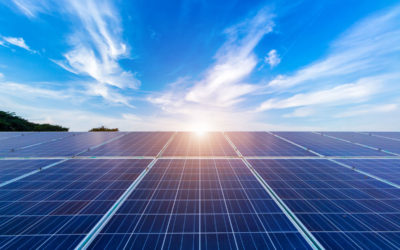Since October 2016, all foreign buyers and developers are subject to a 3% stamp duty surcharge on the acquisition of residential property in Queensland known as Additional Foreign Acquirer Duty (AFAD). The Commissioner has now updated conditions under which ex gratia relief from AFAD can be sought.
This relief is available to foreign persons, as defined in the Duties Act 2001, carrying out ‘significant’ residential development. Relief from AFAD may be granted by the Commissioner on a case-by-case basis. Foreign Persons must also meet regulatory requirements such as complying with the Corporations Act 2001 and complying with Queensland taxation laws.
AFAD will only apply to the acquisition of residential land in Queensland by those who are either:
- a foreign individual – individuals without Australian citizenship or permanent residents (permanent residents include New Zealanders with either permanent visas or special category visas both defined by the Migration Act 1958 (Cth));
- a foreign corporation – companies incorporated outside Australia, or Australian companies where at least 50% interest is with a foreign person/s or related person/s (ie relatives/spouse or partners in a partnership); or
- a trust where at least 50% of its interests are held by a foreign person/s.
RESIDENTIAL LAND
“Residential land” is land that is or will be solely or primarily used for residential purposes. This includes established houses and apartments, vacant land where a home or apartment will be built, land for development for residential use (ie smaller unit block developments, housing subdivisions, and major developments with a residential component), and/or refurbishment, renovation, or extension of a building for residential use.
“Residential land” does not include land that will be or is currently used for hotel and motel purposes.
WHEN EX GRATIA RELIEF CAN APPLY
The Commissioner has announced a number of guidelines and conditions that will be taken into account when determining whether ex gratia relief from AFAD will be granted.
1. The foreign developer undertaking the transaction must be Australia based:
In order to satisfy the conditions of AFAD relief, a foreign developer will need to use a range of factors to establish that they are ‘Australian based’, including:
- whether the foreign entity has a head office or principal place of business situated in Australia;
- if the foreign entity has significant management staff and office presence in Australia;
- whether its employees are Australian citizens or permanent residents;
- any past business dealings within Australia;
- the input that the foreign entity’s Australian management staff and employees have toward the operation of the foreign entity in Australia, and;
- whether the foreign entity primarily engages with Australian building contractors and suppliers in construction work.
2. The foreign developer will need to have complied with any Foreign Investment Review Board (FIRB) requirements in relation to the acquisition of land.
3. The foreign developer must also meet regulatory requirements, such as complying with the Corporations Act 2001 (Cth) and complying with Queensland taxation laws.
4. The development must be significant, or the developer has significant development status.
In order for relief from AFAD to apply, the development being carried out must be established as ‘significant development’. This condition will automatically be met if the foreign developer is commencing development or re-development of 50 or more residential lots. In instances where fewer than 50 lots are being developed, such as in regional areas, the status of ‘significant development’ can still be established if the foreign developer is able to demonstrate that the development makes a significant contribution to the economy, population and social development of that region.
‘Significant developer’ status will also be satisfied if the developer will undertake development or redevelopment of 50 or more residential lots in a 12- month period or, alternatively, the developer averages 50 or more residential lots per year taken on average over a period of up to five years.
5. The foreign developer must primarily employ or contract Australian building contractors and suppliers to engage in the development.
This requires that over 50% of the value paid by the developer for goods and services must be paid to Australian contractors and suppliers, or over 50% of the foreign developer’s employees for the development are Australian.
WHAT DO YOU NEED TO DO?
Foreign investors or developers looking to undertake significant development in Australia are able to apply for ex gratia relief from AFAD through the Commissioner. A statutory declaration must be lodged to the Office of State Revenue detailing the basis on which the foreign developer satisfies conditions for relief along with any supporting evidence.
By submitting a request for relief, a foreign developer will also be acknowledging their obligation to inform the Office of State Revenue within 28 days if it no longer satisfies the conditions for relief.
The ClarkeKann Property & Projects team can assist in determining whether a potential transaction will be subject to any potential relief from AFAD.


